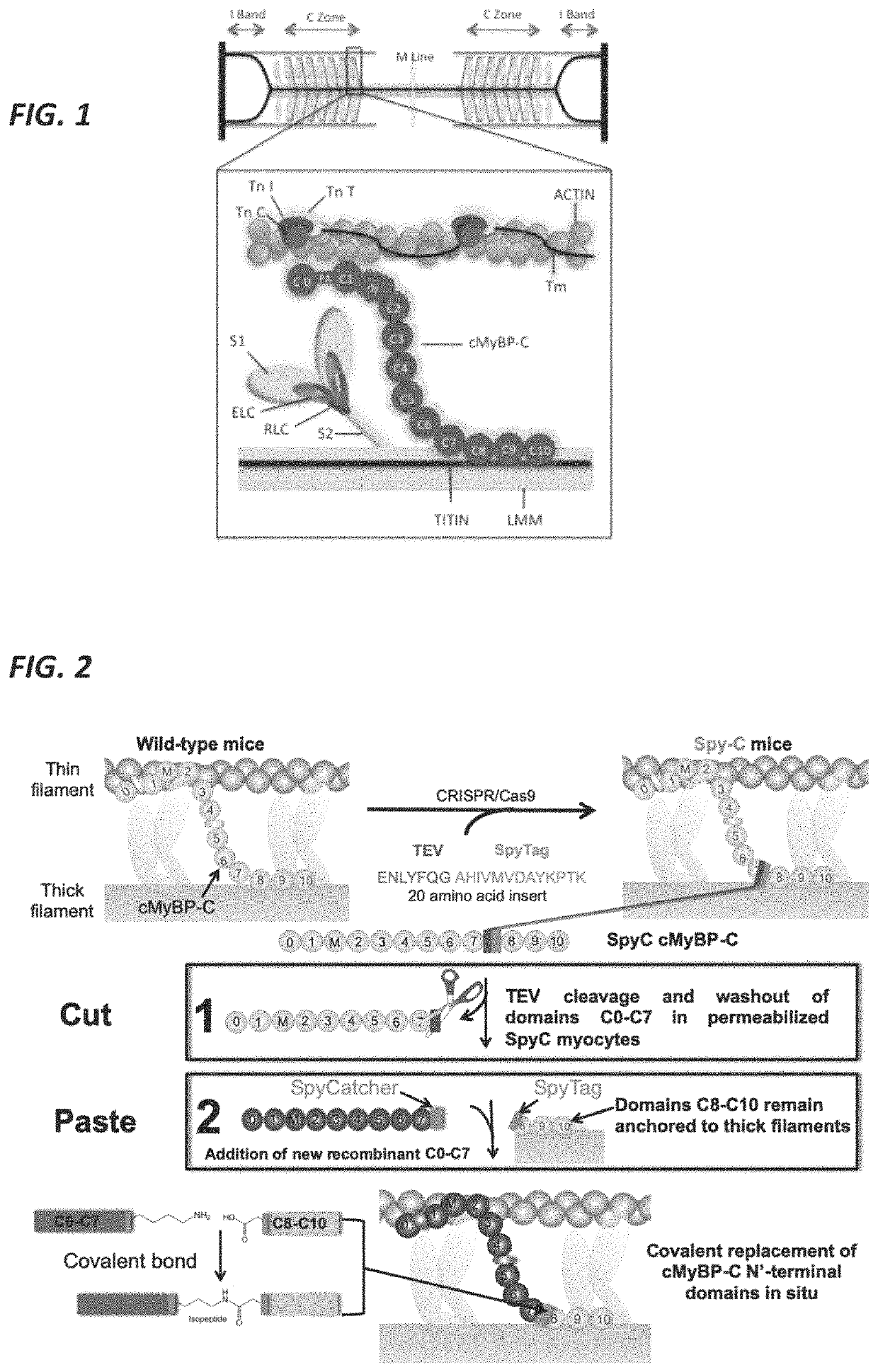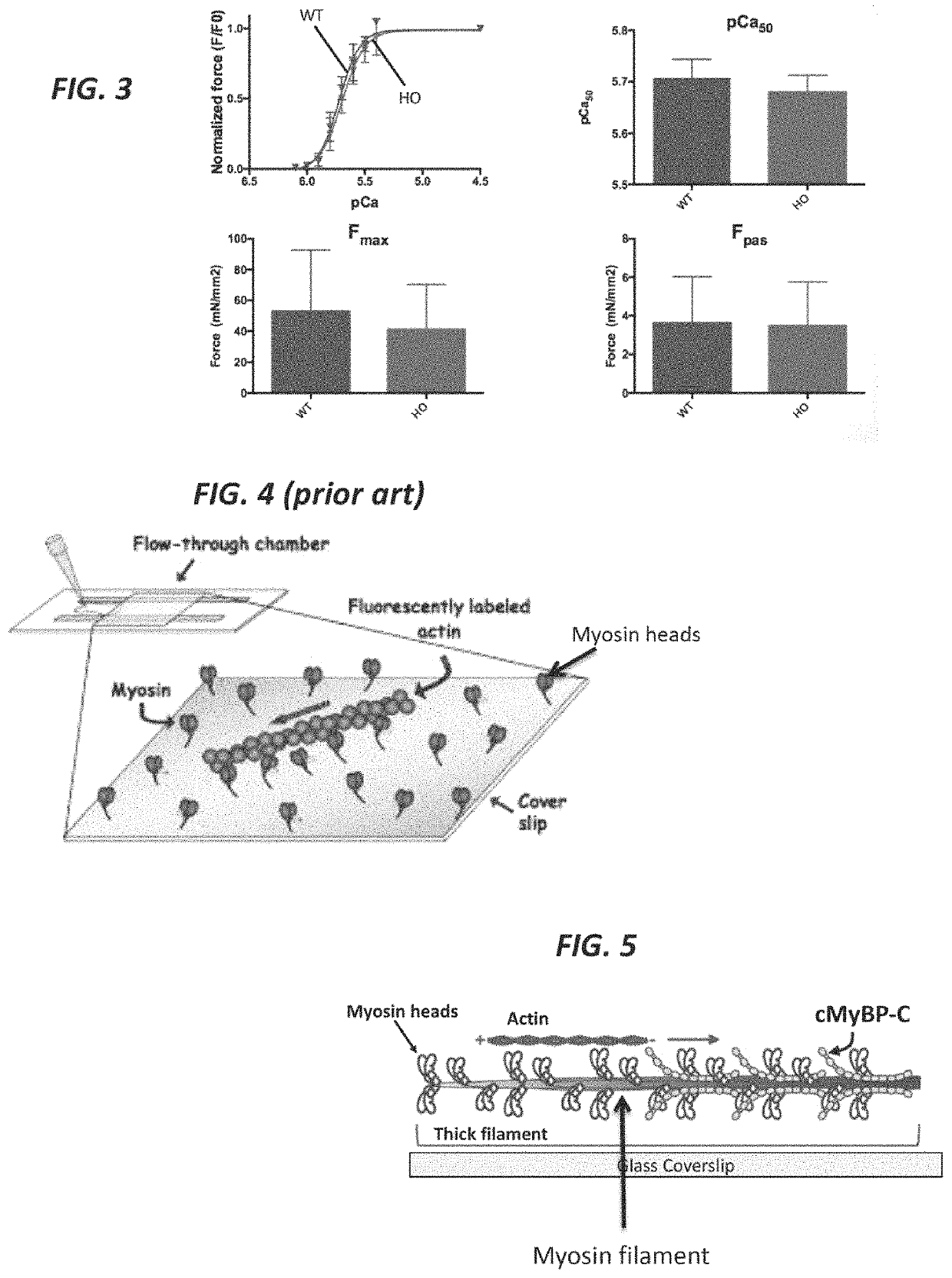Methods and compositions for rapidly replacing cardiac myosin binding protein-C in sarcomeres
a technology of myosin and sarcomeres, which is applied in the field of fast replacement of cardiac myosin binding protein-c in sarcomeres, can solve the problems of difficult manipulation of thick filaments such as myosin, titin, and cmybp-c within muscle cells, and the study of this protein is extremely complex
- Summary
- Abstract
- Description
- Claims
- Application Information
AI Technical Summary
Benefits of technology
Problems solved by technology
Method used
Image
Examples
Embodiment Construction
[0039]The present invention features methods and compositions for rapidly replacing cMyBP-C in its normal position in sarcomeres. The methods herein feature the use of a gene-edited mouse model platform that allows for rapid exchange of new combinations of modified or mutant cMyBP-C, such as phosphorylation site mutants, insertions, deletions, fluorescent probes, etc.
Split Peptide Pairs
[0040]The present invention features the use of a split peptide pair, e.g., a pair of peptides derived from the splitting of a protein into two halves, each with reactive residues. The split peptide pair is engineered to recombine and form covalent bonds (irreversible isopeptide linkages), thereby creating a new fusion protein. A non-limiting example of a split peptide pair includes SpyCatcher / SpyTag. SpyCatcher and SpyTag are well known to one of ordinary skill in the art. SpyTag and SpyCatcher were generating by splitting the CnaB2 domain from the fibronectin-binding protein FbaB from Streptococcus ...
PUM
| Property | Measurement | Unit |
|---|---|---|
| thick | aaaaa | aaaaa |
| compositions | aaaaa | aaaaa |
| structure | aaaaa | aaaaa |
Abstract
Description
Claims
Application Information
 Login to View More
Login to View More - R&D
- Intellectual Property
- Life Sciences
- Materials
- Tech Scout
- Unparalleled Data Quality
- Higher Quality Content
- 60% Fewer Hallucinations
Browse by: Latest US Patents, China's latest patents, Technical Efficacy Thesaurus, Application Domain, Technology Topic, Popular Technical Reports.
© 2025 PatSnap. All rights reserved.Legal|Privacy policy|Modern Slavery Act Transparency Statement|Sitemap|About US| Contact US: help@patsnap.com


